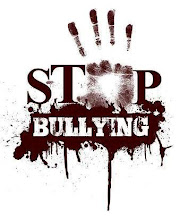Total community involvement is the best way to deal with bullying. If everyone in a community is on the "same page" when preventing or dealing with bullying, it is more likely that their bully-proofing efforts will be successful.
Communities should become involved in bullying prevention because bullying is not just a school issue. Bullying also happens outside the school boundaries in parks, playgrounds, swimming pools, neighborhoods, etc.
Community involvement can have many positive outcomes. First of all, community efforts will increase adults' awareness of the problem of bullying. Many adults do not know about the extent of bullying today and therefore are not ready to deal with it. If adults don't know about bullying, it will continue and perhaps even get worse. Also, kids would not report the bullying because they would think that nothing will happen if they do report it. However, if adults are educated about bullying, they will be on the lookout for it to happen and will be better able to help when they observe it or when it is reported to them.
Another benefit of community involvement in bullying prevention is that it can teach adults that bullying is not "just a normal part of growing up," and that adults should not just ignore it or tolerate it when it happens. Community involvement can also help to develop ways to assist the victims of bullying, and it can also help to change the behavior of the bullies.
There are many things that can be done in the community to handle bullying. Here are some ideas:
- Develop a task-force to organize an anti-bullying program.
- Organize a conference with speakers and programs to deal with bullying.
- Ask local TV, radio and newspapers to help with publicity for your anti-bullying activities.
- Ask local TV stations to show the "Stop Bullying Now!" public service announcements.
- Include local churches in your bully-proofing efforts.
- Organize a "Respect for Everyone" campaign by working with the mayor's office.
- Ask a community theater to present a play about bullying to increase awareness of the problem.
- Hold a billboard design contest. Winning designs of anti-bullying artwork can be made into billboards.
- Display artwork with anti-bullying themes at local bookstores, libraries, and malls.
- Hold a community-based celebration or fair. The fair could include games, activities, contests, distribution of fact sheets, brochures, and newsletters with information about bullying, prizes donated by local businesses, and media coverage of the whole event.
- Create a Youth Advisory Council made up of area youth leaders. Their goal would be to spread the word about bullying and to search for answers to the problem of bullying.
Another community-based way to deal with bullying would be for legislators to create and support a bill aimed to lessen bullying in schools and in the community. In some cities, such bills even require school boards to adopt anti-bullying policies. This legislation could also mandate that schools use a bullying prevention curriculum in their classes.
Mental Health and Public Health Professionals in the community can also be involved in bullying prevention efforts. One way they can do so is by teaming up with schools to help present programs about bullying. They can also teach parents, health workers, educators, law enforcement, emergency medical workers, etc. about bullying and how to spot victims of bullying or children who are at risk of being bullied. These professionals can also include ideas for bullying prevention in their youth activities programs. Finally, during medical exams, health care professionals can also evaluate children for evidence of bullying.
By: Nursazella



No comments:
Post a Comment